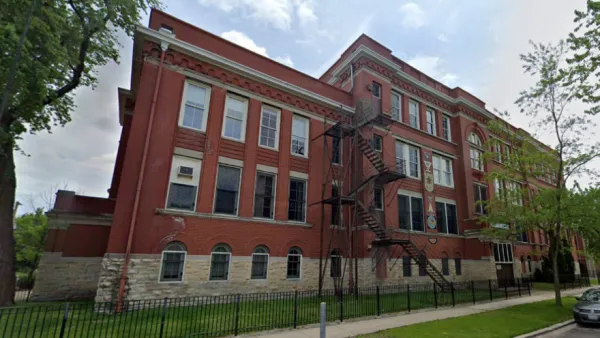Why would Whole Foods—a company colloquially known as "Whole Paycheck" and as a staple of wealthy neighborhoods—open an 18,000-square-foot location in one of the most impoverished parts of Chicago?
According to Emily Badger, "last year, to the disbelief of many, [Whole Foods] announced plans to open a store in 2016 here [in Englewood], in one of Chicago’s most economically depressed neighborhoods."
Reasonable people might assume that the store's opening is a sign of Englewood's eventual gentrification. According to the article, however, "that is not likely to happen in Englewood, at least not any time soon. Whole Foods is planning to sell olive oil and snap peas to the people who live here now. It is also planning, in the process, to make money."
Badger goes on to describe a bit more about the neighborhood's past, present, and the strategic decision to site the Whole Foods market in the hopes of catalyzing the future of the neighborhood. The plan for the development, for instance, includes the help of an urban farm a mile-and-a-half away, run by a nonprofit group called Growing Home.
FULL STORY: Why Whole Foods is moving into one of the poorest neighborhoods in Chicago

Analysis: Cybertruck Fatality Rate Far Exceeds That of Ford Pinto
The Tesla Cybertruck was recalled seven times last year.

National Parks Layoffs Will Cause Communities to Lose Billions
Thousands of essential park workers were laid off this week, just before the busy spring break season.

Retro-silient?: America’s First “Eco-burb,” The Woodlands Turns 50
A master-planned community north of Houston offers lessons on green infrastructure and resilient design, but falls short of its founder’s lofty affordability and walkability goals.

Test News Post 1
This is a summary

Analysis: Cybertruck Fatality Rate Far Exceeds That of Ford Pinto
The Tesla Cybertruck was recalled seven times last year.

Test News Headline 46
Test for the image on the front page.
Urban Design for Planners 1: Software Tools
This six-course series explores essential urban design concepts using open source software and equips planners with the tools they need to participate fully in the urban design process.
Planning for Universal Design
Learn the tools for implementing Universal Design in planning regulations.
EMC Planning Group, Inc.
Planetizen
Planetizen
Mpact (formerly Rail~Volution)
Great Falls Development Authority, Inc.
HUDs Office of Policy Development and Research
NYU Wagner Graduate School of Public Service


























